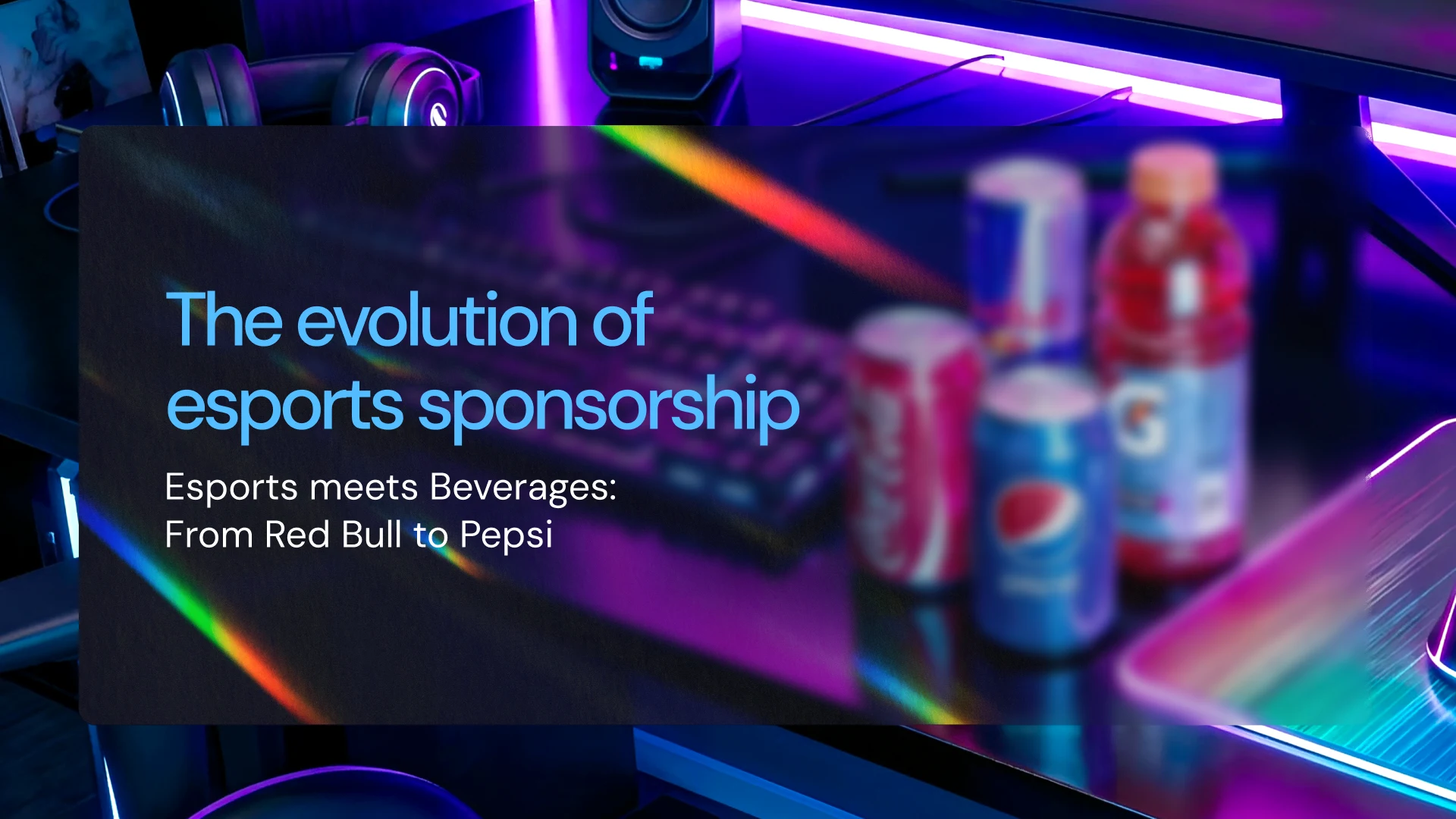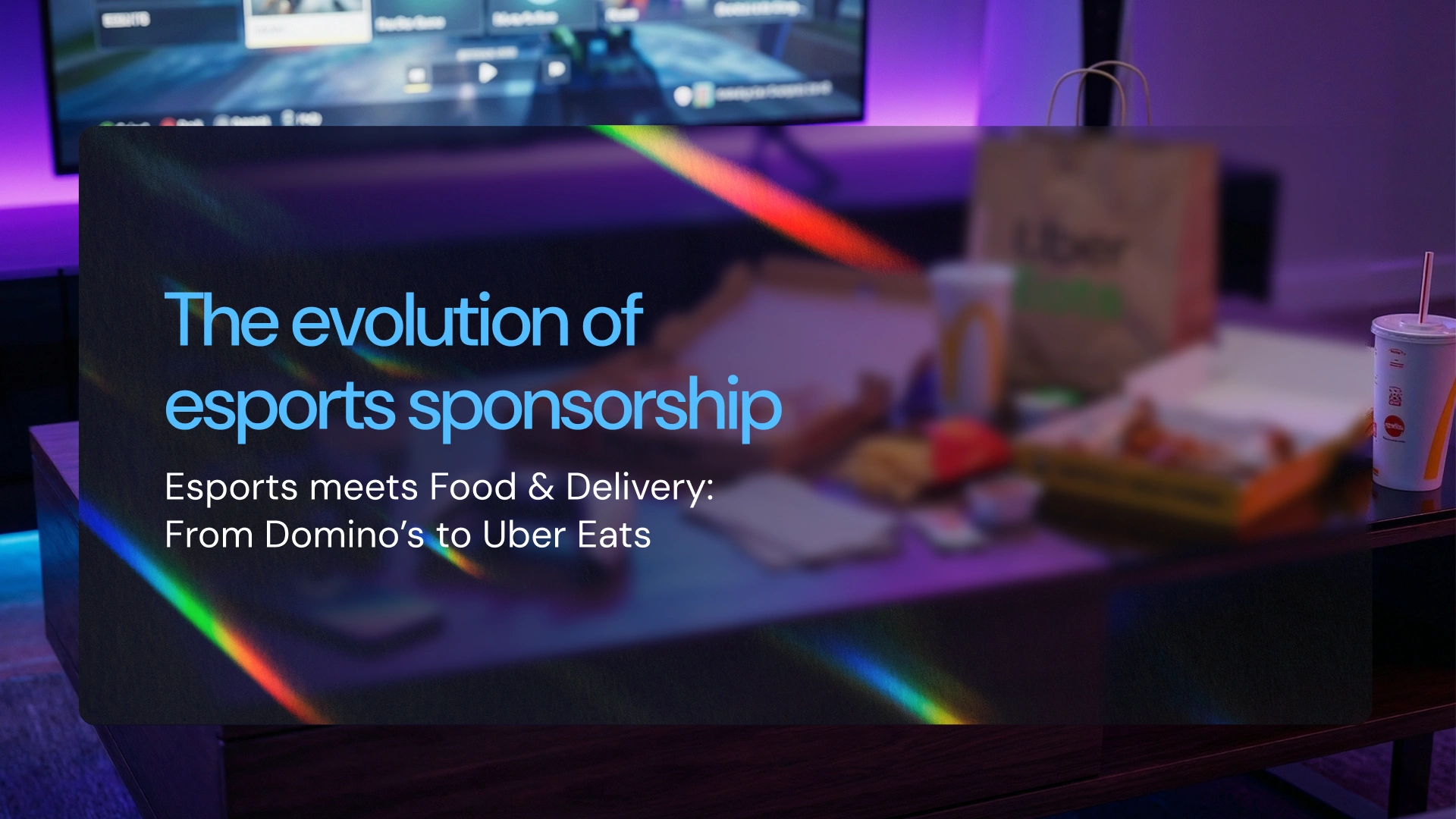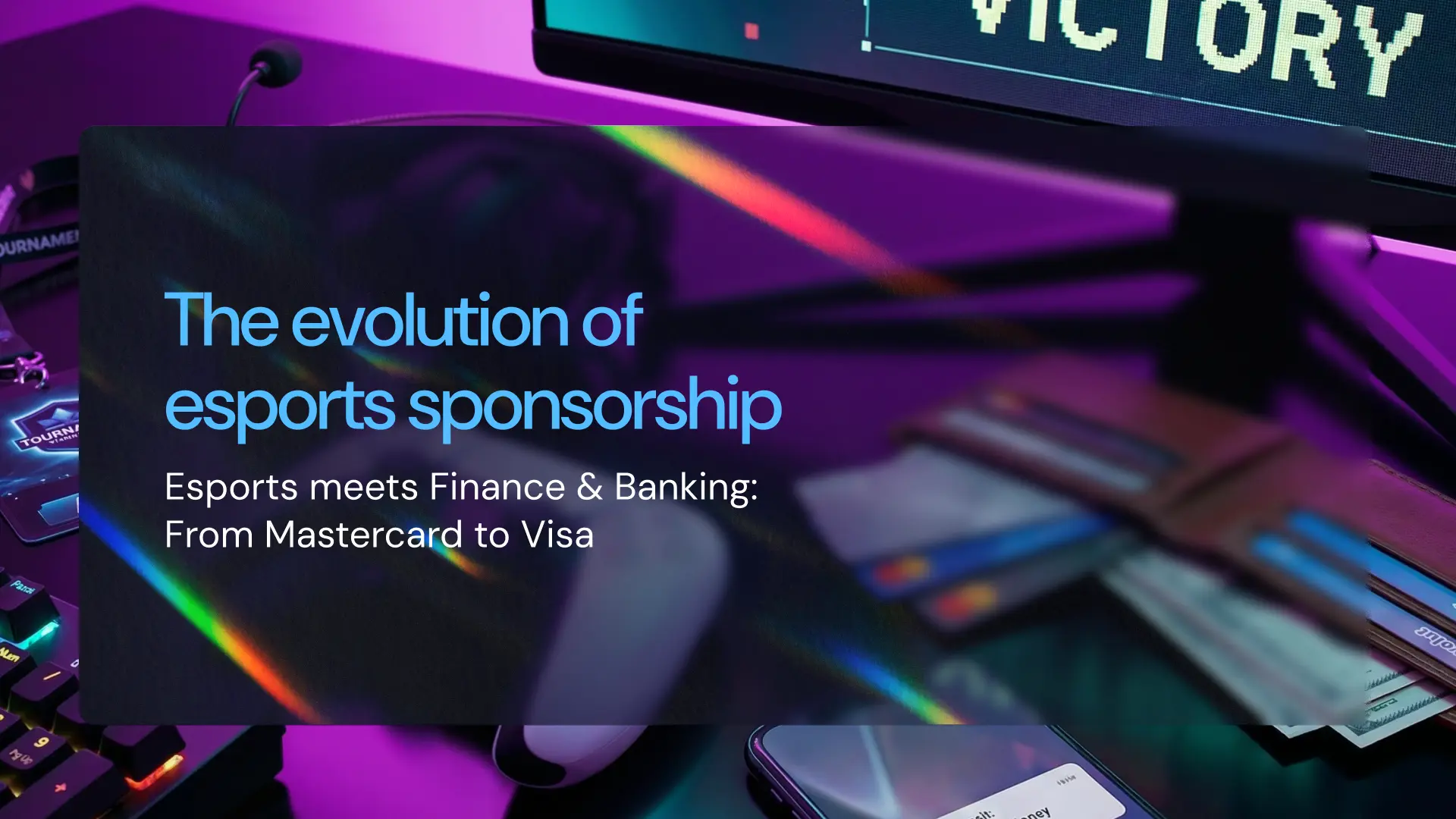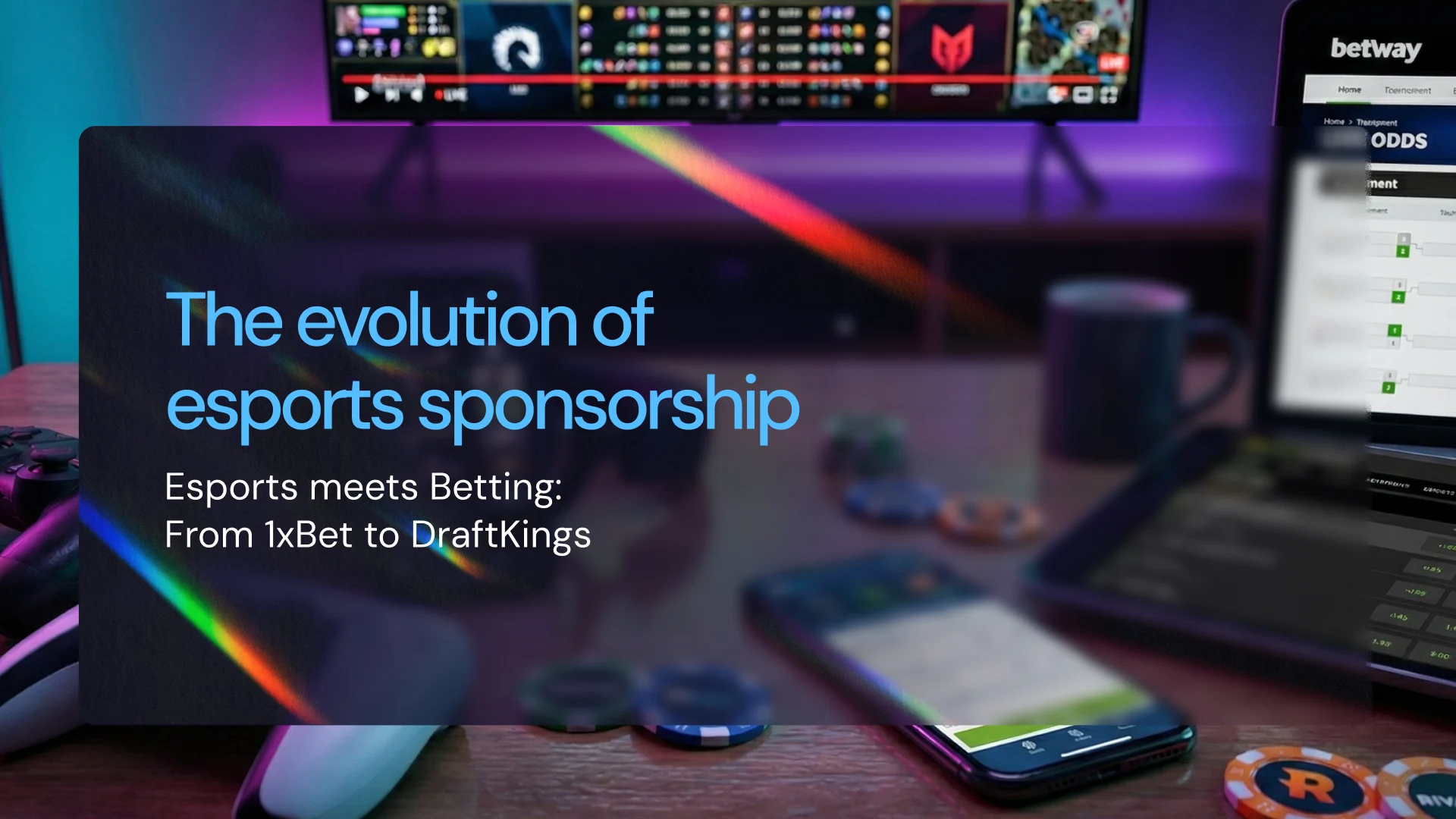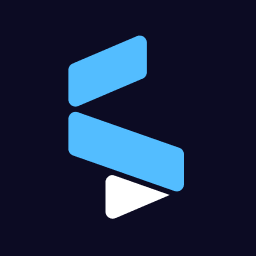How Beverages Found Their Place in Esports
Esports has become a global entertainment category, and beverage brands have been present through most of that growth. Drinks suit how people play, watch and discuss games. They fit long play sessions, they appear naturally on camera and they offer functional benefits that audiences recognise.
Energy drinks, sodas, coffees, functional beverages and alcohol brands have all entered the space. Their approaches vary, but they share the same motivation: relevance, visibility and cultural fit.
Why Beverages Work in Gaming
- Long sessions make having a drink nearby normal for most players.
- Many drink categories position themselves around focus, alertness or refreshment.
- Gaming is social, whether through streams, tournaments or local gatherings. Drinks support that behaviour.
- Streamers often have beverages in frame, which turns everyday consumption into brand exposure.
- Drinks are easy to consume mid-game without interrupting play.
But beverage brands aren't the only ones - fast food and even snack brands have seized opportunities in esports as well.
Notable Examples of Beverage Brands In Esports
The category includes long-time global brands, challenger brands built for gamers and lifestyle beverages looking to connect with new generations.
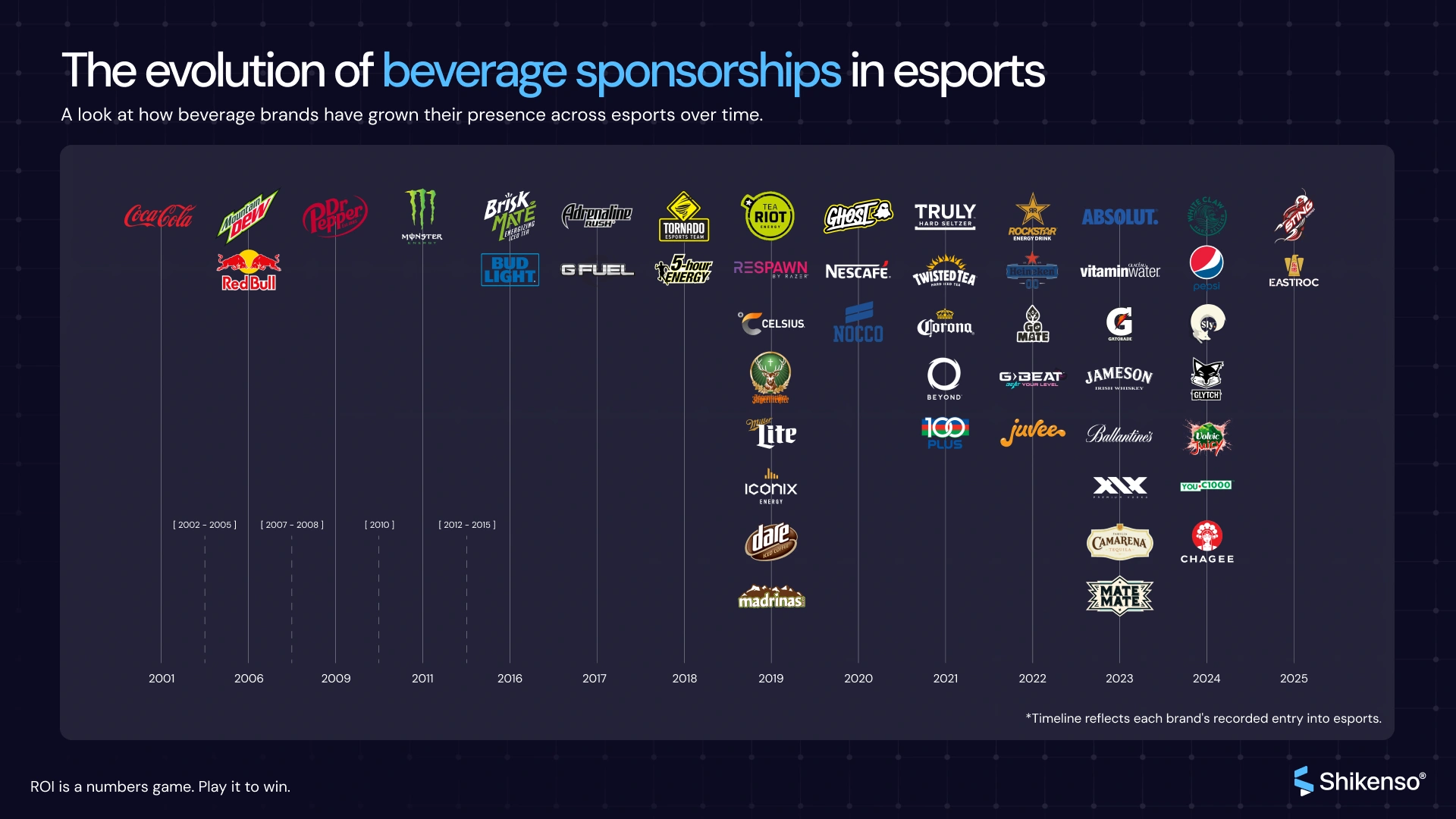

Foundational Years: 2001 to 2010
Coca-Cola (2001)
The first major sign that gaming was becoming culturally significant came in 2001, when Coca-Cola backed the Ongamenet StarLeague for StarCraft. It was one of the earliest examples of a global beverage brand recognising esports as a legitimate audience segment.
Red Bull (2006)
The turning point for energy drinks arrived in 2006 when Red Bull signed Halo legend David “Walshy” Walsh. Treating a gamer as a sponsored athlete was unusual at the time and set a new precedent for player-focused partnerships. By 2011, Red Bull had expanded into hosting its own LAN events.
Mountain Dew (2006)
Esports gained another boost when the Championship Gaming Series named Mountain Dew as a title sponsor. It later developed the Mountain Dew League in 2016 and signed multiple teams in 2017, becoming an established presence in esports alongside PepsiCo’s wider gaming strategy.
The Acceleration Phase: 2009 to 2016
Dr Pepper (2009)
MLG’s partnership with Dr Pepper arrived at a time when few non-endemic brands were willing to invest heavily. Featuring pro players on 175 million bottles was a rare crossover moment that pulled esports into retail shelves across the US.
Monster Energy (2011)
Monster entered esports through its partnership with Evil Geniuses in 2011. Their decade-long relationship confirmed Monster as one of the most persistent beverage sponsors in the space. Monster later appeared across tournaments such as DreamHack.
Bud Light (2016)
Bud Light’s first meaningful esports activation was the Bud Light All-Stars program in 2016. The initiative allowed fans to select esports “ambassadors” who appeared at E3 and TwitchCon. This marked the first structured beer-brand approach in esports.
Brisk Mate (2016)
New products also used esports as a launchpad. Brisk Mate debuted in 2016 with OpTic Gaming, giving the drink immediate relevance among tournament viewers and team loyalists.
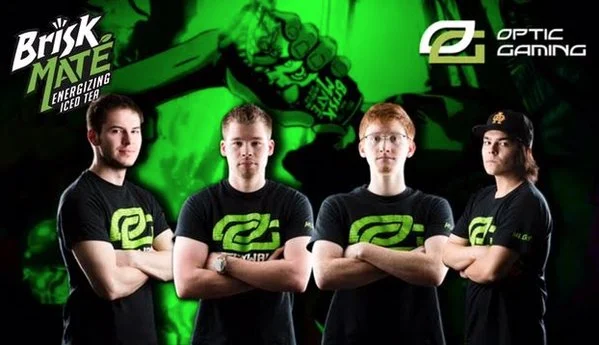
A Diversifying Landscape: 2017 to 2021
The late 2010s saw more specialised drinks and broader lifestyle-focused beverages enter esports.
G FUEL (2017)
G FUEL gained mainstream visibility through its 2017 naming-rights deal with ELEAGUE. The brand had supported FaZe Clan since 2012, but ELEAGUE introduced G FUEL to a wider competitive audience. The FaZe partnership ended in 2022 and returned in 2024.
Adrenaline Rush, 5-Hour Energy and Tornado Energy (2017–2018)
These brands used partnerships with teams such as Virtus.pro and the Renegades, or created their own teams, to reach competitive gaming audiences.
2019: A Year of Major Shifts
Several brands entered during this period with new value propositions.
- Miller Lite partnered with Complexity Gaming and created the Miller Lite Player Lounge.
- Jägermeister sponsored BLAST Pro Series and later worked with G2.
- Celsius teamed up with 100 Thieves.
- Respawn by Razer launched a drink positioned for focus and mental performance.
- TeaRIOT partnered with eUnited with a wellness-led angle.
- Iconix sponsored T1 in South Korea.
- Dare Iced Coffee partnered with ORDER in Australia.
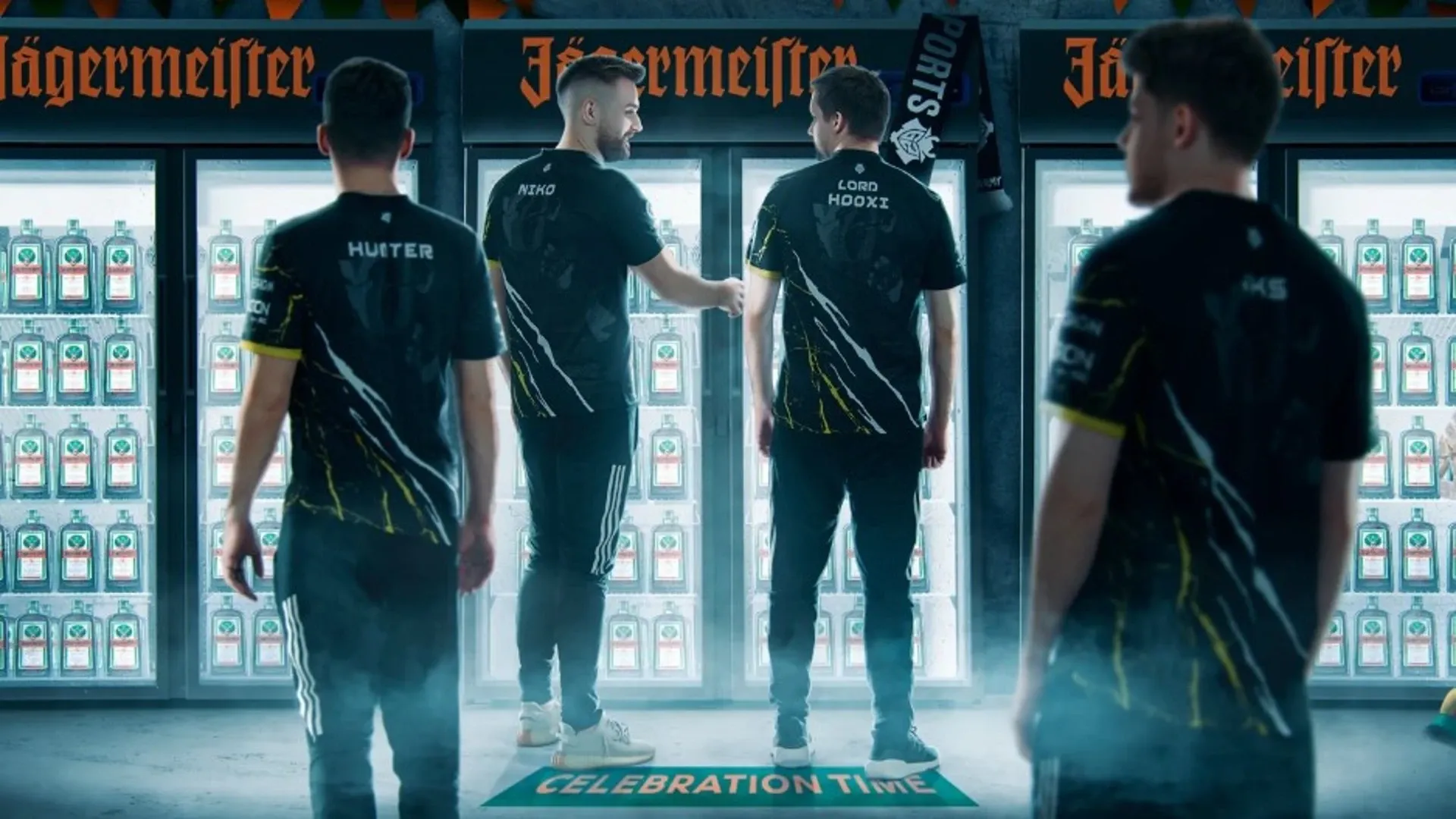
Coca-Cola’s Second Era (2019)
In 2019, Coca-Cola entered a new phase of esports involvement through its partnership with the Overwatch League. This marked a broader reinvestment and is reflected as a second marker in the updated timeline.
Esports Becomes a Lifestyle Category (2020–2021)
By 2020, beverage brands were no longer only targeting competitive gaming. They began entering through cultural and lifestyle channels such as fitness-streamer partnerships, creator-led content and events that focused more on the gaming community than on tournaments.
This shift reflected how gaming audiences behave. Many viewers consume content casually, and brands started building narratives around everyday gaming moments, not just competitive performance.
Examples include NOCCO with fitness creators, Nescafé with mobile gamers and Corona or Truly with lifestyle-led gaming content.
.webp)
New Dynamics: Org-Launched Drinks and Game Collaborations (2022–Present)
Heineken 0.0, Go Mate, Rockstar Energy and GBEat (2022)
These brands entered esports with targeted partnerships across CBLOL, Astralis, NRG and Crazy Raccoon. Each reflected the regional or community-first nature of modern esports sponsorships.
JUVEE (2022)
JUVEE, created by 100 Thieves co-founder Nadeshot, represented a structural shift in the market. Instead of sponsoring a drink, the organisation launched its own. This positioned esports teams as consumer product creators with built-in audiences.
CHAGEE and Honor of Kings (2024)
CHAGEE partnered with Honor of Kings in Malaysia to launch themed drinks, in-game rewards and store events. This was one of the first large-scale tea brand collaborations with a game title. It showed that beverage partnerships can now span digital items, retail activations and cross-promotional storytelling.
Further Expansion (2023–2025)
Recent years saw entries from brands such as White Claw, GLYTCH Energy, Volvic Juicy, YOU.C1000, Sting and Eastroc Super. Many of these partnerships centred around regional leagues, creator events or mobile-first audiences.
2023: Lifestyle, Alcohol and Wellness Brands
2023 marked a shift toward lifestyle-driven sponsorships. Brands focused less on competitive performance and more on culture, community and wellness. Alcohol, hydration and functional beverages all found distinct entry points.
2024: Creator Events, Broadcast Integrations and Hybrid Activations
In 2024, sponsorships leaned heavily into creator events, hybrid offline–online experiences and regional broadcasts. Brands used festivals, conventions and influencer networks to reach broader gaming communities.
2025: Mobile-First Expansion in Asia
Mobile esports continued to grow in 2025, especially across Southeast Asia and China. Beverage brands adapted by aligning with major mobile titles and regional fanbases.
How Sponsorship Models Have Evolved
Beverage partnerships have become more varied. Brands now use team deals, creator relationships, game integrations, limited-edition products and hybrid retail activations. Some sponsorships run continuously, while others pause and return, as seen with G FUEL and FaZe Clan.
The market is broader and more unpredictable than before, and brand strategies follow audience behaviour rather than a fixed template.
Final Takeaway
Beverages have been part of esports since its early broadcast era and continue to adapt to how players and fans engage with games. The strategies may differ, but the objective is consistent: reach audiences where they spend their time, understand what they value and deliver partnerships that feel relevant across regions and platforms.
For brands and rights holders, the challenge is measuring what these sponsorships actually achieve. Clear, timely data remains essential for seeing the impact behind the visibility.
That’s where Shikenso comes in.
Get new insights straight to your inbox
Don’t miss out on the insights that the press and media rave about!
